第43章 CINDERS FROM THE ASHES.(5)
My literary performances at Andover, if any reader who may have survived so far cares to know, included a translation from Virgil, out of which I remember this couplet, which had the inevitable cockney rhyme of beginners:
"Thus by the power of Jove's imperial arm The boiling ocean trembled into calm."
Also a discussion with Master Phinehas Barnes on the case of Mary, Queen of Scots, which he treated argumentatively and I rhetorically and sentimentally. My sentences were praised and his conclusions adopted. Also an Essay, spoken at the great final exhibition, held in the large hall up-stairs, which hangs oddly enough from the roof, suspended by iron rods. Subject, Fancy. Treatment, brief but comprehensive, illustrating the magic power of that brilliant faculty in charming life into forgetfulness of all the ills that flesh is heir to,--the gift of Heaven to every condition and every clime, from the captive in his dungeon to the monarch on his throne; from the burning sands of the desert to the frozen icebergs of the poles, from--but I forget myself.
This was the last of my coruscations at Andover. I went from the Academy to Harvard College, and did not visit the sacred hill again for a long time.
On the last day of August, 1867, not having been at Andover, for many years, I took the cars at noon, and in an hour or a little more found myself at the station,--just at the foot of the hill. My first pilgrimage was to the old elm, which I remembered so well as standing by the tavern, and of which they used to tell the story that it held, buried in it by growth, the iron rings put round it in the old time to keep the Indians from chopping it with their tomahawks. I then began the once familiar toil of ascending the long declivity.
Academic villages seem to change very slowly. Once in a hundred years the library burns down with all its books. A new edifice or two may be put up, and a new library begun in the course of the same century; but these places are poor, for the most part, and cannot afford to pull down their old barracks.
These sentimental journeys to old haunts must be made alone. The story of them must be told succinctly. It is like the opium-smoker's showing you the pipe from which he has just inhaled elysian bliss, empty of the precious extract which has given him his dream.
I did not care much for the new Academy building on my right, nor for the new library building on my left. But for these it was surprising to see how little the scene I remembered in my boyhood had changed.
The Professors' houses looked just as they used to, and the stage-coach landed its passengers at the Mansion House as of old. The pale brick seminary buildings were behind me on the left, looking as if "Hollis" and "Stoughton" had been transplanted from Cambridge,--carried there in the night by orthodox angels, perhaps, like the Santa Casa. Away to my left again, but abreast of me, was the bleak, bare old Academy building; and in front of me stood unchanged the shallow oblong white house where I lived a year in the days of James Monroe and of John Quincy Adams.
The ghost of a boy was at my side as I wandered among the places he knew so well. I went to the front of the house. There was the great rock showing its broad back in the front yard. I used to crack nuts on that, whispered the small ghost. I looked in at the upper window in the farther part of the house. I looked out of that on four long changing seasons, said the ghost. I should have liked to explore farther, but, while I was looking, one came into the small garden, or what used to be the garden, in front of the house, and I desisted from my investigation and went on my way. The apparition that put me and my little ghost to flight had a dressing-gown on its person and a gun in its hand. I think it was the dressing-gown, and not the gun, which drove me off.
And now here is the shop, or store, that used to be Shipman's, after passing what I think used to be Jonathan Leavitt's bookbindery, and here is the back road that will lead me round by the old Academy building.
Could I believe my senses when I found that it was turned into a gymnasium, and heard the low thunder of ninepin balls, and the crash of tumbling pins from those precincts? The little ghost said, Never!
It cannot be. But it was. " Have they a billiard-room in the upper story?" I asked myself. "Do the theological professors take a hand at all-fours or poker on weekdays, now and then, and read the secular columns of the 'Boston Recorder' on Sundays?" I was demoralized for the moment, it is plain; but now that I have recovered from the shock, I must say that the fact mentioned seems to show a great advance in common sense from the notions prevailing in my time.